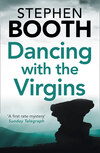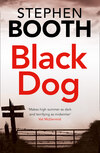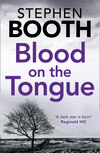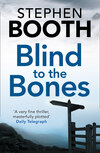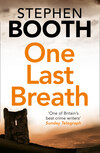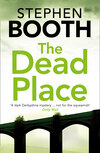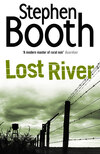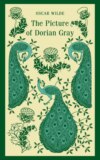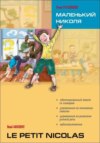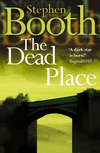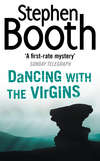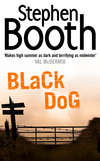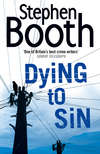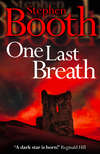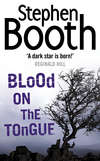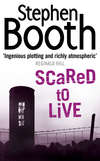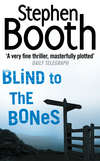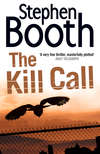Kitabı oku: «Dancing With the Virgins», sayfa 4
‘Yeah, this is her. She’s called Doll,’ said the older boy.
‘You’re Will, aren’t you?’ said Owen. ‘I can’t remember your brother’s name.’
‘He’s Dougie.’
Owen walked slowly towards the calf, hushing her quietly as she shied away and rolled her eyes at him. The boys held on to the halter nervously. But the animal calmed down when Owen began to talk to her, stroking her nose, gently following the lie of her coat along the side of her muzzle. He rubbed her shoulder to feel the firmness of the muscle and ran his hand down her spine. The calf relaxed under his touch.
‘She’s a beauty, lads. In superb condition. She’s a real credit to you.’
‘Thanks,’ said Will. Dougie appeared to be about to add something, but changed his mind.
Both boys seemed shy, but the younger one was particularly uncommunicative. Cooper wasn’t used to silent children. There were several kids of Will and Dougie’s age in his own family – nephews and nieces and second cousins. But none of them was so quiet. They were too noisy, if anything. These days, children were no longer seen and not heard. It was when you could neither see nor hear them that you began to worry, if you were a parent. That was when they were at risk.
But these two were different. They had a reticence about them, a watchfulness that bordered on hostility, as if they had learned to be afraid of visitors.
‘Will you be showing her again next year?’ asked Owen.
That seemed to have been the wrong thing to say. The boys’ faces fell, and Dougie looked as though he might cry.
‘Your dad will take you to the show, won’t he?’
Will shook his head. Now Cooper started to feel uncomfortable. ‘Where is your dad?’ he said.
‘Up at the workshop.’ Will pointed to the back of the house. The two boys looked relieved when they walked away and followed the roadway to a yard, where a metallic clanging came from a shed. Owen stuck his head through the doorway.
‘Warren? Good evening.’
Warren Leach looked up from a bench lit by a dim work-lamp. He was a man with almost no neck. His torso, thick and solid, without a single curve, erupted into bulging shoulders with trapezius muscles that almost reached the line of his jaw. He was wearing blue overalls, with a wide leather belt strapped round his waist.
‘Oh, it’s you,’ he said gruffly. ‘It never rains but it pours round here, does it? What do you want?’
‘Well, it might have been a friendly social call,’ said Owen.
Leach snorted. ‘Oh aye. Did you come past the shippon?’
‘We did.’
‘I suppose you saw those lads of mine. Are they still messing with that bloody animal?’
‘They look as though they’re doing a grand job with her, Warren. She’s in fine condition.’
‘Oh aye. Fine. And so she should be. The animal gets spoiled rotten. She’s fed better than any of us.’
The farmer was fiddling with a steel coupling pin from a trailer’s towing bracket. The pin trailed a short length of chain, which he swung irritably between his fingers.
‘What’s up now then, Ranger?’
‘Warren, the police need to get access for their vehicles up through here for a while.’
‘Oh?’
‘On account of the woman killed up there. You know about that.’
Leach shrugged. ‘It’s no business of mine.’
‘It’s your land, Warren,’ said Fox patiently.
‘Is it part of the access agreement then? Some tourist gets herself done in and I have to put up with this lot roaring backwards and forwards over my land like maniacs?’ Leach jabbed a finger in Cooper’s direction, effortlessly identifying him as what he was. ‘Well, it must have been in the small print, Ranger, because I missed it.’
‘Can you leave that top gate open for the police vehicles to get on to the moor, please?’
‘Leave it open? Why? They can open and close a gate like anyone else, can’t they? Or have coppers lost the use of their hands as well as their feet these days?’
‘It doesn’t do to make the police think you’re being obstructive,’ said Owen.
‘They can think what the hell they like.’
Cooper stayed silent, ignoring the aggressive glare. He was well used to it from the yobbos of Edendale. The only surprise was to see it in a middle-aged Dales farmer. But it was best to let Owen Fox deal with it – it was a chance for him to use his Ranger diplomacy.
‘I suppose I might just have a word with Yvonne then, before I go,’ said Owen.
‘What for? She’s got nothing to say to you.’
‘Just being polite.’
Leach grunted, and the chain tightened in his thick hands until the steel links squealed against each other.
‘It’ll mean I’ll have to move the cows down to the next field,’ he said.
‘Well, that’s no problem, is it?’
‘No problem? The grass is nearly finished in there. My milk yields’ll be gone to hell. They’re down already with all this disturbance.’
‘It’ll only be for a day or two, Warren.’
‘Would there be compensation, maybe? The police have got money. My money, from the Council Tax.’
‘I can’t imagine so. Think of it as a public service.’
Owen looked at Cooper, but Cooper just smiled.
‘Balls to that,’ said Leach.
‘Come on, Warren.’
Leach tossed the coupling pin into his other hand, slapping it against his palm. On a plastic drum, he had a square leather-bound case with steel clasps. Cooper wondered what it was. Somehow it didn’t look like a piece of farming equipment, more the sort of thing a doctor might carry his kit in for testing a patient’s blood pressure.
‘Only for a day or two, and that’s it,’ said Leach. ‘Tell your police friends they’ll have to get a move on. Let ’em work the same hours that I have to work to keep this farm going, instead of knocking off for tea every five minutes. I’ve seen it going on. I’m not stupid.’
‘Thank you, sir,’ said Cooper politely. But the farmer only glowered. ‘When would be convenient for an officer to come and talk to you?’
‘What?’
‘We need to take a statement from you. You’re well positioned here to be a witness.’
‘A witness to what? I went through all this with that other bloody woman that ended up on my land. I never saw this one either.’
‘Do you know who she was?’
‘Of course not.’
‘Then how do you know you didn’t see her?’ Cooper smiled. ‘Somebody will probably call tomorrow to see you.’
The two men began to walk back towards the Ranger’s Land Rover.
‘I’ll be back to see you soon, Warren,’ said Owen.
‘Don’t bother, Ranger. As soon as I see that red jacket of yours, I’ll be halfway to Bakewell.’
They almost ran right into Yvonne Leach in the gateway as they drove out of the yard. She was a small woman, with wide hips and strands of light brown hair tied loosely back from her face. Owen stopped the Land Rover, and the woman shied away, as nervous as a sheep, rolling her eyes at the vehicle. But she couldn’t slip past quickly enough.
Owen wound down the window. ‘Yvonne – all right?’
‘Yes.’
‘We’ve just had a word with Warren. I wanted to tell you not to worry about what happened up there. There are plenty of police about here. You’ll be OK.’
‘I’m not worried,’ said Yvonne, though to Cooper’s eye she looked as scared as any woman he had ever seen.
Warren Leach’s angry bellow came from the yard. ‘Hey, what do you think you’re doing? Get in the house.’ They looked round and saw him glaring at Yvonne. She took the chance of sliding along the side of the Land Rover and scuttling round the corner.
Owen drove on up the track. They had to open two gates to get any further, and the Ranger took it slowly to avoid alarming the cows.
‘Marriage,’ he said, after a minute.
‘What about it?’ said Cooper.
‘The most bizarre thing ever invented, in my opinion. You must see what I mean, in your job. Couples tied together for no apparent reason, making each other’s lives a misery. Isn’t marriage one of the major factors in crime? Domestics, you call them. Aren’t ninety per cent of murders committed by the spouse?’
‘Something like that.’
‘Well, I rest my case. Weddings ought to be banned, along with other blood sports.’
‘I thought the police were cynical, but I don’t think I’ve reached your stage, yet,’ said Cooper.
Then Owen looked at Cooper sideways and waggled his eyebrows. ‘I can see you’re not married yourself. You don’t have that harassed look. You weren’t thinking about it, by any chance, were you?’
‘Well …’ Cooper considered the answer for a moment. ‘I suppose it’s kind of the way I see my life going, some day.’
‘Mmm. Well, close your eyes or look the other way, then.’
The Ranger pulled the Land Rover on to a flat area of bare earth under a stand of beech trees. They were about two hundred feet further up towards the moor, looking down on the farm buildings and the fields around them. Beyond the farm was the village of Ringham Lees, its lights just visible in the trees in the valley bottom; and further away in the darkness, almost hidden by a spur of hill, were the spires of the two churches in the bigger village of Cargreave.
‘Tell your lot they can park here,’ said Owen. ‘The Virgins are just over the rise. That way to the right leads into Top Quarry. Just ask if you want anything else. They say I’m the man who knows these parts.’
Cooper found the cab of the Land Rover was comfortable and warm, full of things that had a practical use, yet without the slightest conscious attempt at imposing the driver’s personality.
‘Do you live locally, Owen?’ he asked.
‘I’ve got a house over there in Cargreave.’
‘I take it you’re not married either?’
‘Me? You must be joking. I may not be Einstein, but I’m not that stupid.’
‘A bad experience?’
‘Other people’s experiences are enough for me, mate. I’ve watched them all go the same way. Those young lads that you meet, full of enthusiasm and vitality, all their lives in front of them. And what happens? A wife and a mortgage. Before you know it, they’re coming into work half-asleep because the new baby’s kept them awake all night, and then they’re moving house to make room for all the family. In the end, they have to get a new job that they hate, just so that they can pay for it all. It’s like getting a life sentence without having the pleasure of committing the crime, the poor sods. Not for me. There’s just me and the cats, since Mother died.’
‘Was that recently?’ asked Cooper. The loss of his own father was recent enough to make him curious about someone else’s experience of the death of a parent.
‘It was a year ago. She was very old, of course. And she never feared death, that was a consolation. I used to take her to church until she couldn’t get there any more. But she could see the church tower from her bedroom, and that seemed to be enough at the end.’
‘And your father?’
‘Oh, he’s been gone a long time.’
‘Don’t you find that losing a parent makes the one that’s left seem very precious?’ said Cooper.
Owen looked at him cautiously. ‘Yes, you’re right. Actually, I think I might have worked with your father a time or two.’
‘Yes,’ said Cooper. ‘I’m sure you did.’
After a moment’s silence, Owen chuckled into his beard. ‘No, I’m on my own. I’m a happy bachelor. Young, free and single, that’s me. Well … two out of three’s not bad. Nobody’s really free.’
Cooper nodded. But he wasn’t thinking about Owen Fox. He was thinking of Yvonne Leach and the two boys he had seen at Ringham Edge Farm. It was one thing to live a life restricted by obligations, in the way that Owen described. But it was another thing altogether when it was fear that ruled your life.
And Cooper’s instincts told him that what he had seen at the farm was exactly that. It might be superficially concealed from the outside world, but it was bubbling very close to the surface. The Leaches were people whose lives were ruled by fear.
5
Since Diane Fry had arrived, the woman had kept her face turned away towards the window. The light from the desk lamp fell only on her left side, outlining her profile, delineating a high cheekbone and a straight nose. It highlighted the gold in a strand of hair tucked behind her ear, and it threw unmerciful shadows on the fine lines etched into the skin of her neck.
The apartment she lived in was austere, with minimal modern furniture, scrupulously clean, and cold, harsh lighting that created stark lines between light and shade. It was as if the rooms had been designed so that someone moving around in their cool spaces could know precisely where the shadows fell, where details were distinct and where they were not. Fry pictured the woman rehearsing her positioning in these rooms like an actress walking about a stage, seeking the best angle, presenting her most favourable side to the audience. On the other hand, perhaps she moved through the shadows by instinct alone – the instinct of a wounded animal. Because there was no mirror in this room to examine the effect in. No mirror, but a pale patch on the wall where one had once hung.
Maggie Crew sat behind a desk, as if conducting a formal interview with a client. On the desk, there were only a few items – a telephone, an ashtray, a paper knife. Along the side wall were a couple of shelves of law books and journals and a stereo system, finished in matt black, with neat racks of CD cases, their titles too small for Fry to make out.
Behind Maggie was a big sash window looking out over the roofs of Matlock. It had a view down the Derwent Valley to the point where it narrowed into a high gorge, with a hill above it that had been hacked and blasted into pieces by quarrying. Heavy green drapes hung from a brass rail over the window, capable of shutting out the natural light entirely during the day. Apart from that, there was little ornamentation in the room. The furnishings spoke to Fry of pretension without showiness, a subtle statement of the owner’s disregard for the comfort of her surroundings. According to the reports, Crew spent all her time in this apartment now, shut away from the world. It wasn’t difficult to understand why. She had been an attractive woman once.
‘My name is Diane Fry, Maggie.’
Maggie nodded. She wore a man’s Calvin Klein cube-design watch, all minimalist straight lines. A pad of A4 ruled paper lay near her hand, with a silver ballpoint pen. But she made no move to write down Fry’s name.
‘I’ve been asked to work with you for a while, Maggie. If that’s all right with you, of course.’
‘You know I’ve already agreed to this. Although I don’t know what good it will do.’
‘I want to go through with you again anything you can remember. Any little detail may help us.’
Where you might have expected Maggie Crew to have let her hair grow long to cover the disfigurement, it was cut short, trimmed clear of her forehead. The left side of her face was smooth and white, her cheeks like the skin of someone who had spent too long in the dark. Her hands, too, were pale, the backs of them flat and shapeless. Fry wondered if Maggie was a woman who struggled against gaining weight. But she was not fat now. Her cheekbones were visible in her face, her shoulders were prominent under the fabric of a black jacket. Fry herself liked to wear black. But on Maggie it seemed to be more than practicality or an attempt to make herself look slimmer; more, even, than a fashion statement. There was an emotion in the blackness, a dark outer show to match her feelings, to fit the atmosphere of the room. It was a sort of mourning.
‘What happened to the last one?’ said Maggie.
‘We just thought a change of personnel might help. A new approach …’
‘A fresh face.’ Maggie smiled. She had small, white teeth, but her upper lip drew back a fraction too far, exposing a strip of pink gum and removing the humour from her smile.
‘So.’ She stared at Fry, measuring her like a potential employee, a candidate for a domestic’s job. ‘Diane Fry. What is different about you, then?’
‘There’s nothing different about me. I’m just here to talk to you.’
‘Do you know how many people have said that?’
‘It’s all in your file,’ said Fry. ‘I know your history.’
‘Ah, yes. You’ve read my file. So you have the advantage of coming here knowing absolutely everything about me. How helpful that must be. Perhaps you think you know more about me than I do myself. Perhaps you think you know how my mind is working, exactly how you might manipulate my subconscious?’
‘Nobody wants to manipulate you, Maggie.’
‘Then what do you want? What is it you all want with me? Don’t you know by now that I can’t give it to you? Isn’t that in my file?’
‘If we keep trying –’
‘You think you might be able to make me remember. Then what? My memories might be able to help you, yes. But what will they do to me? What if I don’t want to remember? What if my subconscious has wiped out the memories?’
‘Do you think that’s the case?’
‘The doctors say there is no physiological reason for the memory loss. There is no damage to my brain. They tell me it’s probably shock; they call it trauma. They say it’s a safety device, which shuts down memories that the brain doesn’t want. Wipes them out.’
Fry watched her, trying to hide the scepticism in her face. She heard the words, and recognized some of the phrases from the medical reports. But she didn’t believe that you could wipe out memories completely, no matter how unpleasant. They left their traces everywhere, in the overlooked corners of your mind, and in the sensations of your body – the touch of your skin against your clothes, the sudden devastating echo in a sound, or the malignant resonance of a smell. Memories were cancerous growths, secretive and spiteful; sometimes you didn’t know they were there until it was too late. Diane Fry knew all about memories.
‘This is just an introductory meeting,’ she said. ‘I’ll come back to talk to you again tomorrow, Maggie. If that’s all right with you.’
‘If you must.’
‘It’s very important now.’
‘Ah.’ Maggie hesitated. ‘Does that mean you have another victim?’
‘Yes, Maggie. And it’s vital we catch this man before he kills again.’
Maggie stared at Diane Fry out of her good eye, assessing her sharply, staring with the unblinking curiosity of someone who rarely saw a new visitor.
‘Kills?’
‘Yes, it’s murder this time. This victim died.’
Fry watched for a reaction. The trembling in Maggie’s hands and the draining of the colour from her face gave Fry a small measure of satisfaction.
‘We also want to put you on a witness protection programme. You know what that means?’
‘Of course. Remember I’m a lawyer.’
‘We’ll ask you to consider finding somewhere else to stay, if possible, Maggie, until we think it’s safe. In the meantime, a technician will call to install alarms in your apartment. You’ll be given a phone number you can call at any time.’
Maggie took a moment to recover her composure. ‘Is all that necessary?’
‘Maggie, we’re looking for a killer now. And you’re the only person who can identify him.’
‘I won’t go away. I’m staying here.’
‘But the other precautions …’ said Fry.
‘All right. But there’s one condition.’
‘Yes?’
‘If you’re going to visit me, do not feel sorry for me. I won’t talk to anyone who shows even the slightest sign of feeling sorry for me. Do you understand?’
‘Of course.’
Diane Fry was glad when Maggie Crew turned away. Since she had met Maggie at the door of her apartment, it had taken her several minutes to settle down, to recover from the initial shock. The sight of her had made Fry’s stomach muscles clench with vicarious pain as she tried to control her expression. But this woman must be used to such reactions by now.
Maggie Crew’s face would never be the same again. The knife had sliced her apart. No plastic surgery could ever completely hide the long, ragged scar that mutilated her cheekbone, splitting her face into two halves like a zip, its raised lips still red and angry, the flesh stretched painfully tight. No surgeon would ever entirely smooth out the ridges of shredded and bruised skin that puckered the corner of her right eye, pulling down her bottom lid to expose the pink veins, and twisting the whole side of her face into a leer.
But there was more even than that. There was the psychological damage that had been done to Maggie Crew. Even to Diane Fry the damage was obvious, though she had never met the woman before. Maggie was a partner in a firm of solicitors in Matlock. She was a successful professional woman, used to feeling self-confident and sure of her own worth. But now she had lost that confidence; her image of herself had been ravaged, slashed to pieces by the knife that had torn her face.
Fry knew that the attack on Maggie had happened six weeks ago. As far as they could ascertain, she had been attacked somewhere near the Cat Stones, the line of rocks below the Hammond Tower, not half a mile from where Jenny Weston’s body had been found. Maggie had been the lucky one. She had managed to stagger halfway off the moor before she collapsed from shock and loss of blood in the shelter of a wall, where she had been found by a farmer’s wife next morning. The doctors said Maggie had been lucky, in that the knife had narrowly missed removing an eye. Fry hoped that nobody had tried telling Maggie herself that she was lucky.
Now Maggie was recovering at home. And that meant she had been sitting here, in this sparse room, hiding from the light.
‘I suppose I should be frightened,’ said Maggie.
‘We’re just taking precautions. No need to be frightened.’
‘It would make a change – a change from finding people are frightened of me. They don’t know how to react, most of them. They don’t know what to say. They don’t want to talk about my face. Do you want to talk about it? About what my injury means to me.’
Fry shrugged. ‘Not particularly.’
Maggie looked surprised. Disappointed?
‘They say plastic surgery might help. But not yet. The injury is too recent.’
‘Yes, it takes time.’
‘Oh, the body heals itself to a certain extent, in time. The blood clots, the wounds close over, fresh skin grows. They can do wonders with surgery, they keep telling me. But it’s never quite the same, is it? You can’t rebuild the original tissue, and your body remembers the injury. You’re always marked in some way.’
The file said that Maggie Crew had received the appropriate counselling. She had gone through all the consultations with a psychiatrist. She had been encouraged to write down her feelings, to talk to Victim Support. The police had treated her with kid gloves for a time. But at the end of the day, they weren’t getting what they wanted. Maggie Crew knew far more than she had told them. She had seen her assailant and survived. He was the same man, they now suspected, who had killed Jenny Weston. It was at this moment, more than ever, that they needed the information locked in Maggie’s head.
Fry wondered how secure the apartment was. It occupied part of the second floor of Derwent Court, a converted spa hotel, a relic of the town’s Victorian past as a health resort. The building had stood derelict for years before an influx of county council office workers had boosted the demand for housing in Matlock. Now comfortably-off residents lived at the end of its marble corridors and stared all day at an expensive view over the Derwent Valley, counting the cable cars as they ferried tourists to the Heights of Abraham.
At least there was a concierge in the lobby downstairs. She would have to have a word with him before she left – he would be able to keep an extra careful eye out for visitors to Derwent Court.
She stared out of the window into the darkness. The quarry-blasted hillside stood out white and stark on the skyline to the south. No attempt had been made to repair or disguise the damage that had been done to the landscape by the mineral companies. The scars had been left as a symbolic reminder, a legacy of the past. And perhaps as a warning too. A warning of what might easily happen again one day – if no one did anything to prevent it.
‘Yes, some things take time,’ said Maggie. ‘Other things take a miracle.’
Ben Cooper had already formed a clear idea in his mind of what Jenny Weston had been like. There had been no shortage of details there, for once. The entry in the log at the cycle hire centre had given them the basics. Not only that, but the cycle hire manager knew which car was hers. Once they had got access to it, they had found her handbag in the glove compartment, with her diary and all the information they could possibly want, written on the front page in her own hand. It listed not only the name, address and phone number of her next of kin, but also Jenny’s date of birth, her National Insurance number, the numbers of her bank account and her mobile phone, the names of her doctor, dentist and vet, her religion, the address of her insurance company, her National Trust membership number, her height and weight, and her shoe size. And her blood group.
And then her father, Eric Weston, had lost no time arriving from his home at Alfreton as soon as they contacted him. Cooper had arrived back at Partridge Cross from Ringham Edge Farm just in time to sit in on the interview with DCI Tailby. Mr Weston had been all too willing to tell them about his daughter. He recited the details eagerly, as if he needed to remind himself, too, of who Jenny was. Of who she had been.
Jenny had been married at twenty-one. Her husband, Martin Stafford, had not been liked by her parents. Police officers heard that one often, of course. Very few parents thought the men their daughters chose were good enough. But in this case, Stafford had lasted about three and a half years before his violent nature became obvious. Jenny had stayed with him another two years before they had finally parted.
The story was a familiar one. A woman abused, yet reluctant to believe that there wasn’t something worth preserving in her marriage; convinced, somehow, that her man did what he did because he loved her. It seemed incredible to Cooper that some women continued to expect far too much of marriage. Their beliefs died hard.
Mr Weston was deputy head teacher of one of the Eden Valley secondary schools. He had that rather weary and worn look that identified middle-aged teachers. His hair was mostly on the back of his head, curly and untidy, and not trimmed on his neck for a long time. He wore a grey suit, but there were shiny patches on the trousers and an indefinable scent that reminded Cooper of his own school days. Chalk and musty text books, school dinners and badly washed schoolboys.
It seemed that Mr Weston was inclined to blame Martin Stafford for Jenny’s death. This was despite the fact that, as far as he was aware, the two of them hadn’t seen each other for three years.
‘It would be just like him to have got in touch again, and for Jenny to agree to meet him, without telling us,’ he said.
‘Do you know where Mr Stafford lives now?’ asked Tailby.
‘No, I don’t. I think Jenny knew. But she never told us that, either.’
‘Why?’
‘She thought we would interfere. We were so worried about her. She never seemed to see sense where that man was concerned.’
‘There are no children from the marriage?’
‘No.’
‘That’s fortunate, I suppose?’
‘I’m not sure about that,’ said Mr Weston.
Jenny had met Stafford while she was a student at the University of Derby. He had been a journalist then, working at the city’s Evening Telegraph – a senior reporter with a flair for off-beat features, or so he had said. According to Mr Weston, Stafford had cultivated a knowing, cynical image, had drunk too much and had cared about little except himself and his career.
‘Jenny was studying to be a radiologist,’ he said. ‘She was already in the third year of her course, and doing really well. She could have had a good career ahead of her, if it hadn’t been for Stafford. She met him in a pub in Derby, and he made a beeline for her. She was an attractive girl. And far too trusting.’
‘What happened?’
‘She became completely besotted with him. She wouldn’t listen to us when we told her to put her studies first, that her own career was more important. In the end, she gave up her studies to marry Stafford when he asked her to. She said she wanted to start a family with him. We had to accept it.’
‘But you said there were no children?’
‘No children. Only divorce.’
Even the divorce had come only after a series of short-lived reconciliations which were, according to Jenny’s father, simply Martin Stafford’s demonstrations of his ability to manipulate their daughter. He had some inexplicable power over her, and he was reluctant to give it up. The situation dragged on for a long time, painfully and unsatisfactorily.
‘When it was all over, Jenny managed to get a job with Global Assurance in Derby,’ said Mr Weston. ‘But then she had to move to their new call centre when it was built in Sheffield. We didn’t like it. It meant she was away from us, away from her family. She went to live alone in that little terraced house off the Ecclesall Road. It was too far away. All she had with her was her blessed cat, not even a dog. Her mother was very upset. She worried about what might happen to her. We both did.’
‘You were worried that Mr Stafford might try to get back in touch with her?’
‘Yes, of course. And that we wouldn’t know about it. Anything could have happened.’
‘But it didn’t.’
‘Well … not so far as we know.’
Mr Weston tried to recall a quick succession of boyfriends after Jenny had moved to Sheffield. All of them, he was sure, were men who were completely wrong for her. To Ben Cooper, Jenny sounded as though she had gone through those men like a woman looking for something she would never find, a woman whose better judgement had been cast aside. For what? A kind of penance? At one point, there had been an abortion. Jenny had not told her father at the time. His wife had told him about it, much later.
